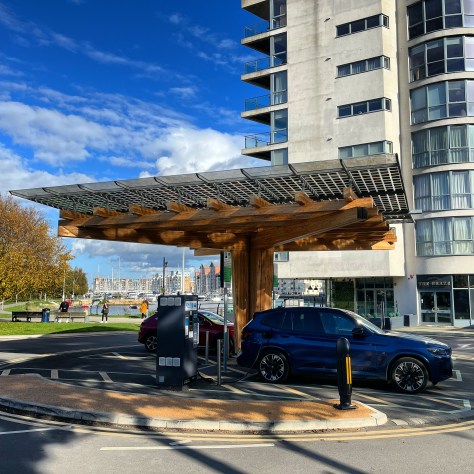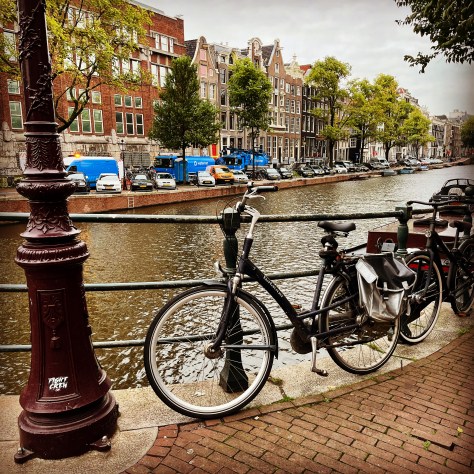
I often, well sometimes, I got asked what is the difference between a smart campus, and an intelligent campus.
A dumb campus is merely a series of spaces and buildings. For example the heating comes on at 8am, off at 5pm, and is only switched on between November and March, regardless of the external temperature.
A smart campus, uses data from the spaces and buildings to make decisions. For example, a thermostat controls the heating, as the room warms up, the heating turns off.
An intelligent campus, uses data from across the organisation to make decisions and make predictions. For example, a team is out on an away day, so the intelligent campus, switches off the heating and lighting on that floor for that day.
Now onto the detail…
The smart campus is already here; the technology, sensors and data analysis capability are all available, but it isn’t all joined up and so has limited scope in terms of what we can learn and how we can use the knowledge.
What we need now is the intelligent campus, where data from the physical, digital, and online environments can be combined and analysed, opening up vast possibilities for more effective use of learning and non-learning spaces.
But before we head down that road, it is useful to reflect on what we mean by a campus.
Universities across the UK are a diverse mix of traditional campus-based institutions, city-based universities where the estate is mixed in between retail, office and housing, and multi-site universities, with geographically spread campuses.
But they all have many features in common. There are formal teaching spaces, including classrooms, lecture theatres and labs. There are informal learning spaces, where learners can learn when they want to, including computer labs and the library.
There are also a whole host of social spaces such as cafeterias and dining halls, sports facilities, concert halls, common rooms, and student accommodation. Then there is the work space you need to run the institution, from the finance office to the server rooms, and there may also be green spaces, parking areas and business parks.
The non-smart or “dumb” campus is one where information on how physical infrastructure and space is being used, and what it is being used for, is rarely noted, and even more rarely acted upon. Any room utilisation surveys will be carried out by people with clipboards noting the number of people in each room, but probably not considering their activities. It would be really hard to work out how many people were in the building, even more challenging when there are multiple entrances and exits. In the non-smart campus heating comes on at 8am, and is only on between November and March, regardless of the external temperature. There are physical switches for the lighting system. Timetabling will dictate which cohort has to be where and when, and what subject they are doing. But often that is planned a year ahead and won’t take account of the kinds of teaching and learning that may be undertaken in any given slot, or whether the cohort changes size.
The non-smart campus can be inefficient, costly, and impact negatively on the student experience.
In many ways the smart campus is already here. Most new buildings built on the university campus will have an element of smartness about them.
There is some technology already in place which can start us on the road to making better-informed decisions about how best to use space, sensors, for example. We all know when lighting is linked to a movement sensor because everything goes dark when we sit still for too long, promoting much frantic arm-waving to turn the lights back on. The data from these sensors can tell us a lot about occupancy, as well as saving electricity costs.
But the smart campus goes further than such simple actions and allows us to gather data about the spaces and, importantly, act on that data. We can turn down heating in rooms which aren’t being used, and the system will take into account the actual external temperature and not just the time of year. We can use electronic entry systems, such as swipe cards, to ensure the security of the rooms, but also to measure room occupancy. We can also ensure that the lighting, heating and CO2 levels are within defined parameters.
Timetabling and curriculum planning, gives us an insight into when students could be on campus (not saying they will miss lectures, but you and I know this happens), adding in attendance data (if used) can enhance that picture. Bring in retail date from the coffee places and the shops. Data on bus tickets and car parking will also be an useful indicator of visitors to the campus.
Throw in library data, PC bookings and book issues.
Then there is network data, how busy is the network, how many devices are connected. Top end wireless networks can also help with occupancy based on connections to different wireless endpoints.
Even energy costs will add some useful insights into the use of the campus.
So what is the difference between a smart campus and an intelligent campus?
There are some key considerations when we come to looking at what makes an intelligent campus – the first is the aggregation and analysis of different kinds of data.
One of the noticeable attributes of a smart campus is that data is often siloed and isolated, and analysis and decision-making is based on a single data set.
An intelligent campus will take data from a range of sources, not just the physical aspects of the campus and how they are being used, but also the data from digital systems such as attendance records, the virtual learning environment, the library, student records, electronic point-of-sale and online services.
This joined-up approach can provide insights into the student experience that we would otherwise miss. These insights can inform and support decision-making by individuals across the campus, including students, academic and professional service staff. By using live and dynamic data, decisions can be made that are based on the current state of the campus. Here are some examples:
A student using an app on their smartphone can decide very quickly if they should visit the library that day as the app is indicating that the library is very busy, but it also informs the student that the noise levels in the coffee shop on the other side of campus are low, making it a possible option for study.
A lecturer decides on various group activities in a classroom, the room system having checked the module information and activity parameters, and set the heating and lighting to the optimal level for the activity, while also considering the preferences of the particular cohort of students.
A member of the finance team finds out from an app on their computer, based on data from previous visits, that the cafeteria is running low on the vegetarian special that day, so they can decide to leave now for lunch, so as not to miss their favourite meal.
The next level of the intelligent campus is to move beyond using this live data to add a machine learning or artificial intelligence element to the analysis, providing further insights. Bringing in historical data, feedback, and evaluative data, we can start to add a level of predictive analytics that will allow students and staff to make informed decisions on what is likely to happen.
Predicting when the library will be most busy and noisy, for example, will allow students to choose whether to come to campus before or after peak times, and will reduce the probability that the library will be too full for comfort at any one time.
An intelligent timetabling system could start to reflect on the sort of activity likely during a particular study module, not just on the number of students taking part, so the group activity could be shifted to an optimal room, rather than sticking rigidly to the same space.
By analysing when and how rooms are used, organisations will be able to make smarter, more effective use of learning spaces and other facilities across campus and to improve curriculum design and delivery.
But could this dream become a reality? Learning analytics services rely on a hub where academic and engagement data is collected, stored and processed. What if we, as a sector, could extend the learning data hub to enable data to be gathered in from physical places? How would we collect that data and what smart campus technologies would we need to have?
Making timely interventions to ensure that the best available spaces are being used for each session will enable students to learn more effectively and ensure that the organisation is running efficiently. Insights into utilisation of space, services, and resources, will enable universities to enhance the student experience.
Though much is being done in this space, the work has been focused on the relationship between the physical estate and the IT infrastructure coming together. The reality is that a university campus is awash with data from many different systems. A truly smart campus needs to bring that altogether, and an intelligent campus will enable deeper and more useful insights. Longer-term the possibilities for the intelligent campus are practically limitless.
















































